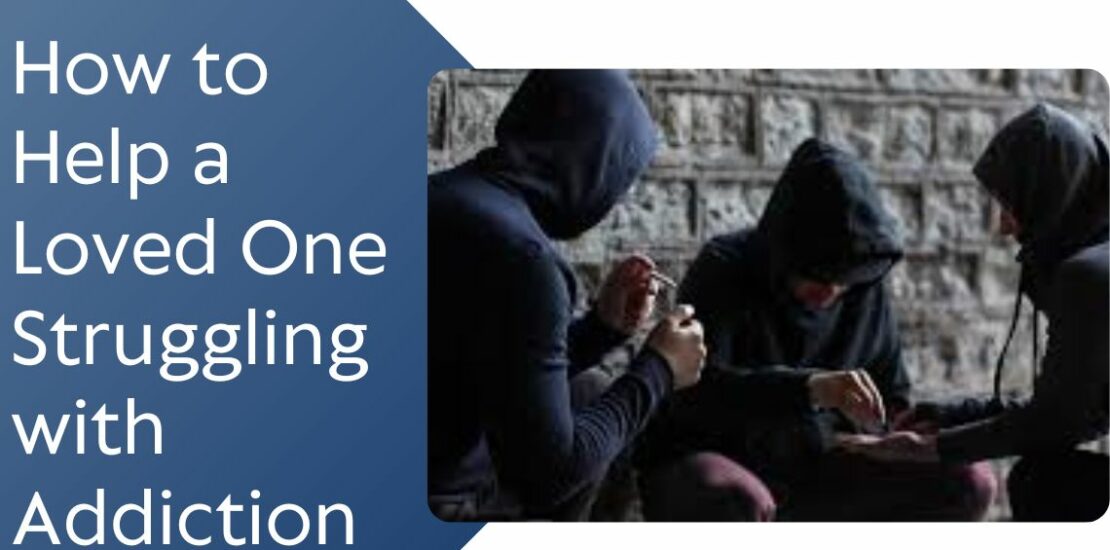How to Help a Loved One Struggling with Addiction
- September 2, 2025
- Posted by: kartik
- Category: Uncategorized

When your loved one who means the world to you- such as your child, parent, partner, or friend- is struggling with addiction, it can leave you helpless, heartbroken, & unsure of what to do next. It’s a prohibited substance or a prescription medication. You cannot force your loved one to stop using drugs or other addictive substances. Here are multiple methods to support your loved one who is struggling with addiction. In this blog, we will discuss different ways to support a loved one with addiction, or how to recognize addiction in your loved one
Understanding Struggling With Addiction
Addiction is a major cause for people who are using any kind of addictive substance. Substance use disorder, also called addiction, is a disorder that affects the human brain and the overall body. People struggling with addiction lose authority over their actions and mental health. In this situation, addiction can be difficult because it affects your brain. Understanding the major effects of addiction is helpful for those who are struggling with addiction. Struggling with addiction has a powerful influence on the mind. This influence is clear in three ways:
- Craving for the thing of addiction
- Loss of control over its use
- Lasting involvement with it despite the problems it causes
Ways To Support A Loved One Facing Addiction
During the struggle with addiction, there are severe ways to support a loved one facing addiction. You can feel troubled to sustain someone who is struggling with alcohol or drug use.
Supporting a loved one in struggling with addiction, there are several methods to follow:
Know What Addiction Is
Know what type of addiction your loved one has, such as alcohol, drugs, & other intoxicants. It’s just about how your loved one uses a substance; it’s why they are using it. Your loved one starts using abusive drugs for multiple reasons, such as depression, anxiety, & PTSD. Not everyone who uses drugs becomes addicted, but common risk factors make someone more sensitive.
- Family history of addiction
- History of trauma, abuse, & neglect
- Co-occurring mental health conditions, as depression or anxiety
Identifying Relapse Triggers
Relapse starts when your loved one reverts from the recovery stages of their addiction and back into struggling with addiction.
Several factors can impact a person’s recovery risk of relapse, such as negative emotional states, experiencing anger, or fatigue.
Keep in mind that addiction is a disease
Addiction is a disease that affects the way the brain works & reconstructs its formation. When an addiction happens, it is important not to blame your loved one or get frustrated & annoyed with them. Addiction is a disorder of the mind, not a moral disease.
Offer Real Support
Struggling with addiction reasons makes people feel lonely, guilty, or undeserving of love. Talk about the real support that can help your loved one reduce & stop their alcohol or drug use. Focus on that you are happy to talk again & provide real support to your loved one who’s struggling with addiction.
Stay Engaged in Their Recovery Journey
Recovery does not finish when treatment begins; it is a journey. When your loved one is in therapy, taking medication, or engaged in support groups or family counseling, your continuing support can make all the difference. Attend meetings with your loved ones & help them in making healthy routines, or remind them that time is never the same.
Knowing Your Loved One’s Addiction
Knowing your loved one’s addiction helps you to support your loved one on their way to addiction recovery. Individuals use drugs & addictive substances for several reasons. Many people turn to substances to manage the emotional pain of a mental health disorder, such as depression, anxiety, or PTSD. Knowing information about treatment, addiction, & recovery helps you to support your loved one’s addiction recovery journey.
Addictions also have two types: Substance addiction & non-substance addiction.
Substance Addiction:
- Alcohol addiction
- Caffeine
- Anti-anxiety drugs
- Sleeping pills
- Paint thinners, aerosol sprays, gases, & nitrites.
- Prescription & non-prescription drug addiction, such as codeine, oxycodone, & fentanyl addiction.
Non-substance Addiction:
- Gambling
- Exercising or Dieting
- Shoplifting or other risky behaviour
- Using an over-the-phone or a computer
- Viewing pornography
- Having sex
Recognizing Addiction in a Loved One
It is not always easy to recognize if a loved one is abusing drugs. Recognizing symptoms of addiction is different from man to man and is based on the substance or drug abused. The people keep using addictive substances even while trying to stop themselves. And tries many times to reduce substance use and rude behavior, but does not succeed. In common, recognizing signs a loved one is addicted includes:
- Facing Problems at work, school, or home: Addictive people may face issues, such as not fulfilling responsibilities at work, school, or home due to substance use or the activity.
- New health issues: Struggling with addiction affects all aspects of people’s lives, including their physical health, mental health, & newly developed health disorders.
- Changes in their mood & physical activity: People with struggling addiction may experience changes in mood & physical activity, such as shaking, sweating, or vomiting.
- Repeated financial problems: Struggling with addiction, people spend money on addictive substances, which causes repeated financial problems.
Conclusion
Stopping the use of addictive substances is not the end of addiction. Individuals relapse after a long time and regularly use addictive substances. If your loved one is using abusive drugs, understand your loved one’s addiction and listen to the person without judgment and support them on their path to recovery. Knowing the effects of addiction is helpful for addiction recovery. The effects of struggling with addiction on family and friends are very impactful and have an impact on mental health, losing relationships, and emotional distress.

